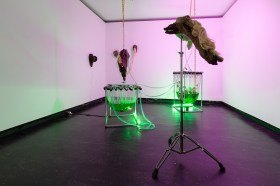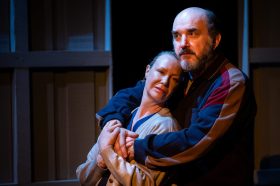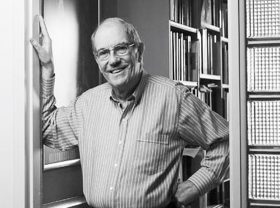If you’d planned on studying medicine or law in order to have a fall-back option should your career as an artist not pan out, it’s probably about now that you’re wishing you’d stuck to your guns and applied for that fine art or arts management course you’ve always dreamed of.
And you wouldn’t be alone. The world is full of comedians who dropped out of law school in order to focus on making people laugh, and artists who started out studying archaeology or criminology only to switch to a creative writing or acting course in their second year.
Changing your course preference is one way of ensuring that you end up with a vocation – a career that calls to you – not just a mundane occupation that makes you unhappy but pays the bills.
If you’re seriously considering changing your course preference, perhaps because your Australian Tertiary Admission Rank (ATAR) score is different to what you were anticipating, or simply because you’ve changed your mind, it’s best to do it now rather than live with buyer’s remorse for the next semester or two.
To assist you in making the right decision about which course or tertiary institution is best for you, here are some tantalising study options from around the country, in case changing your preferences is the option you’ve decided on.
THE UNIVERSITY OF MELBOURNE’S MASTER OF CULTURAL MATERIALS CONSERVATION
If ‘cultural materials conservation’ brings to mind a picture of a solitary figure labouring over a painting in a closeted back room, banish it. Today’s conservators are more like scientists, working with state-of-the-art accelerated ageing equipment and innovative pigment-testing tools in bright, purpose-built labs.
At a time where transience seems increasingly to be valued over permanence (think Instagram, fast fashion), it might come as a surprise that conserving cultural objects holds allure for the millennial generation.
‘People love the stories objects tell,’ explains Professor Robyn Sloggett. ‘Many students come into the course because they love the tactility of objects or have a making background, and they want to be able to bring those skills together in a rigorous way that’s going to make a difference.’
Read: How a new generation is preserving culture for the future
DEAKIN UNIVERSITY’S PUBLIC ART COMMISSION
Studying media, communication and creative arts at Deakin University doesn’t just provide you with firm foundations for a career in drama, journalism, 3D animation, photography, creative writing and more – students this year have the unparalleled opportunity of participating in the creation of place-responsive public artworks at the Venice Biennale.
‘Our project is really inviting our artists to respond to a series of provocations that we have set them within the public sphere of Venice – so various locations, stories and histories,’ said Commission Co-Director David Cross.
‘Our artists can choose if they want to make a site-based project or performance project or an intervention into the landscape and they will document that work in the Palazzo Bembo.’
Read: Deakin University students to create unique art for 2019 Venice Biennale
ACKNOWLEDGE CREATIVITY’S DIPLOMA OF CREATIVE ENTERPRISE
‘The Diploma of Creative Enterprise bridges the gap between business and creativity, because business is creative,’ said Suzanne Jackson, Managing Director of Acknowledge Creativity, a division of Acknowledge Education.
The Diploma is ideally suited to people ready to take the next step in their arts management career, and arts entrepreneurs who want to see their ideas blossom into reality. It develops key skills that are transferrable across a wide range of positions and industries, giving participants considerable career flexibility.
Diploma graduates have a strong foundation in business management, a thorough understanding of entrepreneurship, and a clear knowledge of applying creativity as a value-adding strategy in businesses and organisations outside the arts sector.
‘We want participants to succeed,’ said Jackson, ‘and are pleased to offer a grant of $10,000 for the best business proposal developed through the program.’
Read: Get business smart with a Diploma of Creative Enterprise
Western Australian Academy of Performing Arts
If you’ve ever imagined yourself working on a new production of Strictly Ballroom: The Musical or playing jazz standards alongside Katie Noonan, enrolling at the Western Australian Academy of Performing Arts (WAAPA) at Edith Cowen University might be for you.
At WAAPA students don’t just study: they have ongoing opportunities for hands-on learning through participation in the school’s annual performance and concert program.
‘Our productions and concerts are the very core of the students’ training,’ said Professor Julie Warn AM, WAAPA’s Executive Dean and Director.
The performances they create are of the highest standard, she added.
‘Working with the finest international and national artists as part of WAAPA’s ongoing Visiting Artists Program, alongside WAAPA’s dedicated staff, our exceptional students produce the most tantalizing variety of performances throughout the year.’
Read: The performing arts academy where participation is a part of life
THE UNIVERSITY OF TASMANIA
Students enrolled at the University of Tasmania don’t just have access to the University’s award-winning staff at campuses located across the state in Hobart, Burnie and Launceston – they also have the opportunity to participate in an array of innovative and high profile cultural projects thanks to the relationships between UTAS and festivals such as Dark Mofo, The Unconformity Junction Arts Festival and Mona Foma.
The opportunity to participate in such acclaimed events are a huge boost to students, especially considering their creations can be seen and experienced by thousands of people. Such exposure can also be beneficial at the conclusion of their studies.
‘There is something that you learn from a real-world brief that you just can’t get from a classroom or a textbook,’ said Head of Theatre and Performance, Dr Jane Woollard.
‘It also has that really unique advantage of making professional connections. Many of these placements can lead to, if not an immediate job out of graduation, maybe a job further down the road. And at the very least, these placements can provide a mentor to touch base with in your future career, too.’





